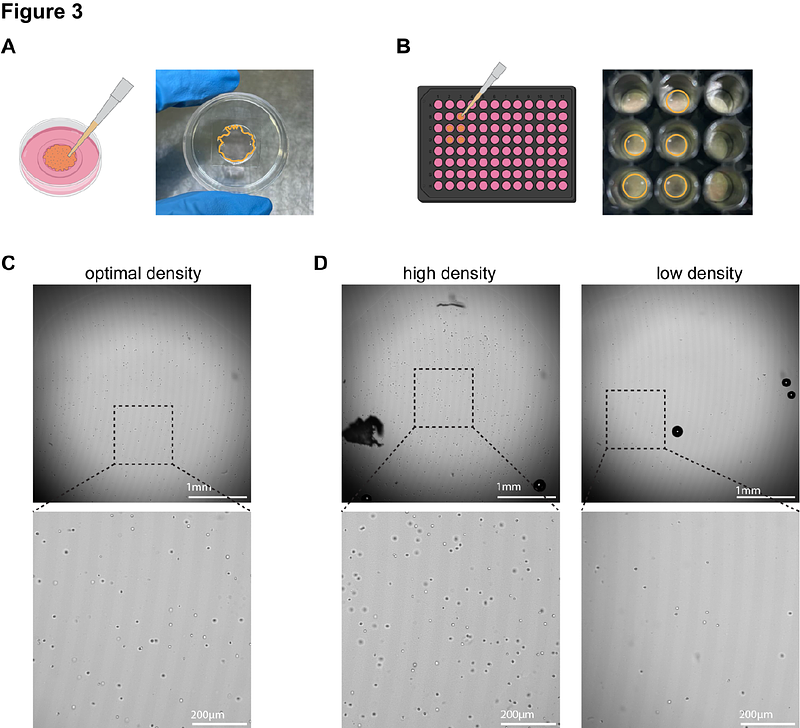Neural tube organoid generation: a robust and reproducible protocol from single mouse embryonic stem cells

Neural tube organoid generation: a robust and reproducible protocol from single mouse embryonic stem cells
Krammer, T.; Tanaka, E. M.
AbstractThe development of mammals is a highly complex process, characterized by the necessity for precise concentration- and time- dependent signaling for correct pattern formation and morphogenesis. Despite considerable technological advancements and knowledge gathered, numerous aspects of mammalian development remain elusive. When examining the entire organism, it becomes challenging to disentangle the effects of individual pathways or the mechanism by which external stimuli guide the interference of surrounding tissues and factors. In addressing this complexity, three-dimensional (3D) in vitro models such as organoids have emerged as valuable tools. Organoids, derived from embryonic stem cells (ESCs) or induced pluripotent stem cells (iPSCs), exhibit tissue-like features that closely resemble their in vivo counterparts in terms of expression patterns and functionality. Importantly, they offer accessibility for manipulation and extensive biological studies within a controlled experimental setting. Despite originating from pluripotent cultures, organoid systems often exhibit heterogeneity and substantial variability, limiting their utility when studying complex and intricate biological questions. Therefore, there is a pressing need for detailed protocols aimed at harmonizing procedures that result in high-quality reproducible data, reduction of materials used and which importantly permit the investigation of convoluted phenomena. In this context, we present an optimized protocol for the cultivation of neural tube organoids (NTOs) in vitro. By producing stable culture conditions and offering comprehensive troubleshooting strategies, this protocol enables the reliable and reproducible generation of NTOs which serve as an adequate model to study relevant scientific questions.


